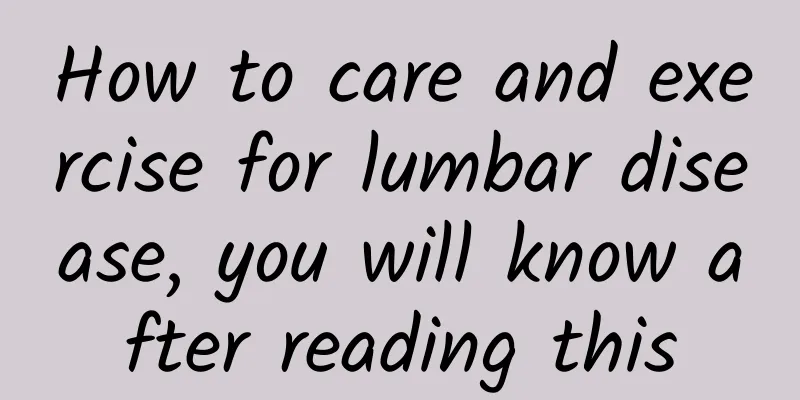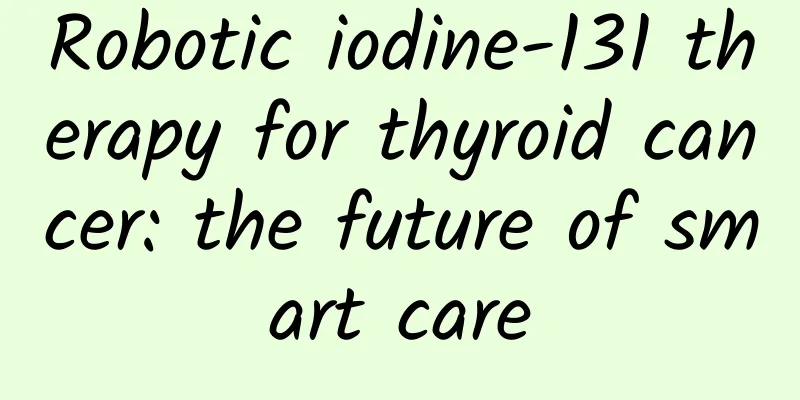“凸” Question: Am I really that “prominent”?

|
"Doctor, I have been having back pain recently. They say I have lumbar disc herniation. Do I need surgery? Will I be unable to go to work after the surgery?" In daily clinical work, patients often ask questions like this. So is back pain definitely caused by lumbar disc herniation? Under what circumstances does lumbar disc herniation require surgical treatment? What is the surgical treatment for lumbar disc herniation? Let's introduce it in detail below. 1. What is lumbar disc herniation? Lumbar disc herniation refers to a disease in which the lumbar disc undergoes degenerative changes and, under the action of external force, the annulus fibrosus partially or completely ruptures, and the cartilage end plates protrude outward alone or together with the nucleus pulposus, stimulating or compressing the vertebral nerves and nerve roots, causing low back and leg pain as the main symptom. 2. The relationship between low back pain and lumbar disc herniation Low back pain is often the result of a complex interaction of biological, psychological and social factors. Almost everyone will experience low back pain in their lifetime. Symptoms of low back pain include lumbar muscle strain, facet joint disease, third lumbar transverse process syndrome, lumbar spondylolisthesis, and even pelvic disease. Lumbar disc herniation is often accompanied by radiating nerve pain at the same time as low back pain, that is, the pain usually extends to the legs, especially below the knees. The diagnosis of lumbar disc herniation not only requires consideration of symptoms and signs, but more importantly, it requires the combination of imaging examinations such as X-ray, CT, and MRI to make a final diagnosis. 3. What kind of lumbar disc herniation requires surgical treatment? Patients with lumbar disc herniation who have just occurred and have a short course of illness and whose symptoms can be relieved after rest may not need surgical treatment. Instead, they can choose conservative treatment methods such as bed rest, oral nonsteroidal anti-inflammatory drugs, traction therapy, etc. according to the specific situation. 1. Lumbar and back muscle exercise: Lumbar and back muscle exercise can enhance the muscle strength of the waist and back, improve the stability of the lumbar spine, and thus prevent further degeneration of the lumbar spine. 2. Non-steroidal anti-inflammatory drugs: also known as "painkillers" by ordinary people, cannot solve the problem of lumbar disc herniation from the root, but can significantly reduce pain and improve the quality of life. 3. Traction therapy: Through traction, the height of the intervertebral foramen is increased, thereby reducing the pressure of the protruding disc and hypertrophic joints on the nerve roots, thereby alleviating the corresponding neurological symptoms. We would recommend surgery if: (1) Patients with lumbar disc herniation have severe and recurrent back and leg pain symptoms. Non-surgical treatment has been ineffective for more than half a year, and the condition has gradually worsened, affecting their work and life. We will recommend surgical treatment to patients. (2) Due to central lumbar disc herniation, urinary and bowel disorders and abnormal sensation in the saddle area are called cauda equina syndrome, which requires immediate emergency surgery! How is Lumbar Surgery Performed? Lumbar spine surgery can be basically divided into two categories: traditional open surgery and minimally invasive surgery. Traditional open surgery has a wide operating space, a clear decompression effect, can treat multi-segmental diseases, and can treat other diseases such as lumbar spinal stenosis and lumbar spondylolisthesis while treating lumbar disc herniation. However, the surgical incision is long, the muscle tissue is damaged, and a long period of bed rest is required. Minimally invasive surgery is performed under endoscopy, with minimal trauma, quick recovery, and early postoperative ambulance, but its indications are relatively limited and it is not suitable for all patients. (Pictures from the Internet) |
<<: Quora: The gap that Q&A sites need to cross
>>: SEJ: Global Social Media Growth [Data Infographic]
Recommend
Don't touch your breasts like this
Self-examination is one of the most basic ways to...
Coconut oil is healthier? Don’t believe it! I really don’t recommend eating it. Anyone who believes it will be cheated!
Myth: "Coconut oil is healthier" Coconu...
Why stomach discomfort during pregnancy
The most obvious pregnancy reaction for women dur...
Episiotomy wound redness and swelling picture
During a first-time natural delivery, some imperf...
Sad, singer Coco Lee passed away! Can girls who love to laugh also suffer from depression?
Last night, a sad news swept across major social ...
How to relieve pain after virginity
Generally speaking, when a woman's hymen rupt...
What to do if your menstrual period is too heavy?
There is a certain amount of menstruation for wom...
Is giving birth at 36 weeks considered premature?
It is very worthy of joy for women to give birth ...
Sanitary napkins cause allergies, these measures can be used to deal with
Although the quality of sanitary napkins is very ...
What should I do if my genitals itch during the confinement period?
During the confinement period, women often experi...
Can I do back cupping during menstruation?
We all know that women's bodies are very sens...
Can eating apples relieve menstrual cramps?
Dysmenorrhea is a problem that troubles many fema...
What are the "black spots" on Chinese cabbage? Can you eat it?
In the cold winter, doesn’t it feel comfortable t...
Girls have dandruff and hair loss
Hair loss may be caused by endocrine imbalance or...
How can girls remove beard effectively?
Many girls find that they have grown beards, whic...









